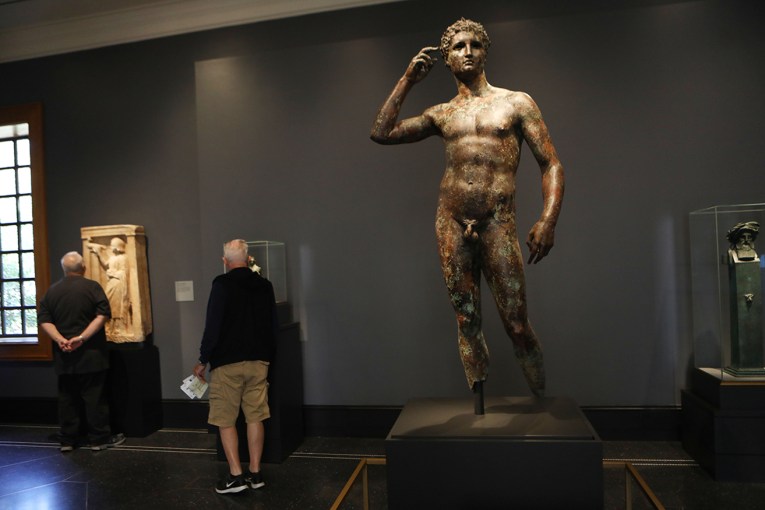Ebola crisis reaches NYC
A doctor in New York City has tested positive for Ebola after returning to the United States from a stint in West Africa with Doctors Without Borders, the New York Times is reporting.
The doctor, identified as Craig Spencer, was working for the humanitarian organisation in Guinea, one of three West African nations hardest hit by Ebola.
• Everything you need to know about Ebola
The New York Times said Dr Spencer was placed in isolation at Bellevue Hospital and that a further test would be performed by the US Centres for Disease Control and Prevention to confirm the finding.

Doctor Craig Spencer.
The New York City Department of Health and Mental Hygiene said earlier it was tracing all of the patient’s contacts to identify anyone who may be at potential risk.
“It is our understanding very few people were in direct contact with him,” New York Mayor Bill de Blasio said at a news conference.
“Every protocol has been followed.”
The Harlem apartment building of the doctor may also be evacuated, New York City councilman Mark Levine said.
Doctors Without Borders said in a statement the doctor had recently worked in an Ebola-affected country in West Africa with the humanitarian organisation.
“A person in New York City, who recently worked with Doctors Without Borders in one of the Ebola-affected countries in West Africa, notified our office this morning to report having developed a fever,” the statement read.
He had been undergoing regular monitoring and reported the fever immediately, it said.
The organisation said it immediately notified the New York City health department.
Doctor without borders
Dr Spencer, who returned to the United States within the past 21 days, was being treated at Bellevue Hospital, the city’s health department said.
Dr Spencer’s Facebook page showed a photo of him clad in protective gear. It showed he went to Guinea around September 18 and then to Brussels on October 16.
A woman at the Bellevue Hospital information desk identified herself to a staff member as the fiance of the patient. She appeared very agitated and declined to comment.
The department said it was tracing all of the patient’s contacts to identify anyone who may be at potential risk.
It also said he had been transported by a specially trained unit wearing protective gear.
An employee at Bellevue said the hospital’s staff had been trained and were well prepared for the possible case.
“Everybody’s calm,” said Maria Delgado, 60, a clerk with the radiology department, outside the midtown Manhattan hospital.
“To be quite honest, you really don’t know who walks in there anyway.”

A worker wearing protective Ebola gear. Picture: Getty
Fears spread
Fears about the spread of Ebola, which has killed nearly 4,900 people largely in Liberia, Sierra Leone and Guinea, have mounted in the United States since the first person diagnosed with the disease in the United States, a Liberian man who had flown to Texas, was hospitalised in Dallas last month.
He died on October 8 and two nurses who treated him became infected with the virus.
The United States this week began requiring travellers coming from Liberia, Sierra Leone and Guinea to enter through one of five airports that are conducting increased screening for the virus.
It is also directing those travellers to check in with health officials every day and report their temperatures and any Ebola symptoms for 21 days, the period of incubation for the virus.
The UN World Health Organisation said such arrival screening may have “a limited effect” in stopping the virus spreading but whether it adds anything to exit screening from affected countries is a decision for governments.
Connecticut placed six West Africans who recently arrived in the United States under quarantine for possible Ebola exposure.
The family, who arrived on Saturday and was planning to live in the United States, will be watched for 21 days, Connecticut state health authorities said.
Officials have yet to say where the family came from.
Meanwhile, Mali has said it has detected its first confirmed case of Ebola, making it the sixth West African country to be touched by the worst outbreak on record of the deadly haemorrhagic fever.
Health Minister Ousmane Kone told state television the patient in the western region of Kayes was a two-year-old girl who had recently arrived from neighbouring Guinea, where the outbreak began.








